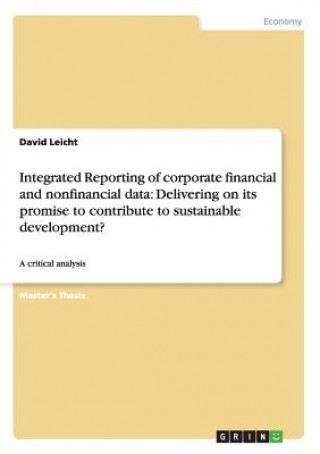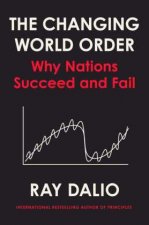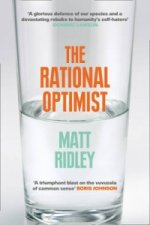
Code: 05283467
Integrated Reporting of corporate financial and nonfinancial data
by David Leicht
Master's Thesis from the year 2012 in the subject Economics - Other, grade: -, The Graduate Institute, language: English, abstract: There is wide-spread awareness about the fact that business has caused or aggravated many signific ... more
- Language:
 English
English - Binding: Paperback
- Number of pages: 96
Publisher: Grin Publishing, 2012
- More about this

59.65 €
RRP: 64.16 €
You save 4.50 €

In stock at our supplier
Shipping in 15 - 20 days
You might also like
-

Petroleum Collectibles
22.75 € -25 % -

ECG
144.49 € -

Explaining Political Judgement
48.52 €
Give this book as a present today
- Order book and choose Gift Order.
- We will send you book gift voucher at once. You can give it out to anyone.
- Book will be send to donee, nothing more to care about.
More about Integrated Reporting of corporate financial and nonfinancial data
You get 151 loyalty points
 Book synopsis
Book synopsis
Master's Thesis from the year 2012 in the subject Economics - Other, grade: -, The Graduate Institute, language: English, abstract: There is wide-spread awareness about the fact that business has caused or aggravated many significant global crises, calling into question the sustainability of our current economy. Proponents of the emerging concept of Integrated Reporting, however, argue that corporations can reverse this trend by reporting their financial information together with information measured in CSR reports about at what costs to environment and society, also called footprint, a corporation has achieved its profits. Such opening up to disclosure, so the argument, creates incentives for corporations to reduce their footprint; and reputation and capital allocation will then reward well-performing, sustainable corporations leading to a dynamic mechanism that will contribute to sustainable development.Such an argumentation is simplistic and does not hold. Property economics establishes that within a property-based economy, corporations are faced with specific economic requirements as a result of the capitalization process, namely requirements to grow and secure profitability across time and competition. Such requirements leave corporations with no option than to subdue social and environmental considerations to their pursuit of profitability. The latter, in return, dictates that corporations use strategies like Integrated Reporting, arguing for voluntary corporate self-regulation in regards to costs imposed on society and environment, in order to shape a regulatory framework that accommodates their ability to respond to economic requirements. Corporations are moreover not likely to voluntarily report on any measure that will threaten their profitability. The concept of Integrated Reporting can not simultaneously be a corporate tool for shaping a specific legal framework that subdues environmental and social considerations; as well as a contribution to sustainable development, at least not as long as the latter is analyzed from an eco-social perspective that requires that economic interests be subdued to social and environmental considerations. Integrated Reporting can, however, play a role in informing society about the footprint of a given corporation if regulation establishes what is to be measured by corporations when disclosing their footprint.
 Book details
Book details
Book category Books in English Economics, finance, business & management Economics
59.65 €
- Full title: Integrated Reporting of corporate financial and nonfinancial data
- Subtitle: Delivering on its promise to contribute to sustainable development?: A critical analysis
- Author: David Leicht
- Language:
 English
English - Binding: Paperback
- Number of pages: 96
- EAN: 9783656296973
- ISBN: 3656296979
- ID: 05283467
- Publisher: Grin Publishing
- Weight: 136 g
- Dimensions: 210 × 148 × 6 mm
- Date of publishing: 07. November 2012
Trending among others
-

Principles for Dealing with the Changing World Order
24.36 € -13 % -

Team Topologies
23.96 € -10 % -

Art of Statistics
10.92 € -21 % -

Predictably Irrational
14.93 € -17 % -

ITIL4 A POCKET GUIDE
23.45 € -

Economic Facts and Fallacies
16.64 € -20 % -

Start-Up Nation
9.12 € -28 % -

Complete Guide to Starting a Paintless Dent Repair Business
36.29 € -

Fatal Conceit (Paper)
14.43 € -23 % -

Why Nations Fail
11.22 € -5 % -

Freakonomics
8.51 € -14 % -

Pyramid Principle, The
51.23 € -

Economics In One Lesson
14.73 € -26 % -

Rational Optimist
13.73 € -

Irrational Exuberance
20.45 € -6 % -

Freakonomics
6.01 € -23 % -

Misbehaving - The Making of Behavioral Economics
10.62 € -10 % -

Price of Inequality
9.52 € -19 % -

Business Model Navigator, The
26.66 € -12 % -

Leading at a Higher Level
28.57 € -9 % -

Economics 101
13.13 € -28 % -

Econometric Analysis, Global Edition
86.53 € -

Hypomanic Edge
20.05 € -16 % -

Fed Up
25.56 € -16 % -

Currency Wars
15.83 € -14 % -

Decision Book
13.33 € -30 % -

Principles of Economics
15.53 € -13 % -

Debt by Design
14.73 € -1 % -

Facilitator's Guide to Participatory Decision-Maki ng, Fourth Edition
42.01 € -7 % -

JD Story
28.57 € -18 % -

The Corporate Startup: How Established Companies Can Develop Successful Innovation Ecosystems
25.46 € -24 % -

Essential Mathematics for Economic Analysis
80.61 € -

Liar's Poker
13.73 € -

How I Made One Million Dollars Last Year Trading Commodities
39.10 € -21 % -

(Mis)Behaviour of Markets
13.13 € -28 % -

Think Like a Freak
9.72 € -1 % -

The Invisible Hand
7.21 € -28 % -

A-Level Economics: Year 1 & 2 Complete Revision & Practice (with Online Edition)
26.46 € -14 % -

Breakthrough Copywriter
17.04 € -

Scrum - A Pocket Guide - 3rd edition
22.75 € -3 % -

Debt, 10th Anniversary Edition
25.76 € -27 % -

Cartoon Introduction to Economics
15.83 € -24 % -

New World Economy: A Beginner's Guide
14.73 € -22 % -

Discovery, Capitalism & Distributive Justice
18.34 € -12 % -

Economics: The User's Guide
12.83 € -22 % -

Economics Book
21.15 € -14 % -

Human Action
38.10 € -

Phishing for Phools
16.34 € -17 % -

Misbehavior of Markets
22.35 €
Collection points Bratislava a 2642 dalších
Copyright ©2008-24 najlacnejsie-knihy.sk All rights reservedPrivacyCookies


 15549 collection points
15549 collection points Delivery 2.99 €
Delivery 2.99 € 02/210 210 99 (8-15.30h)
02/210 210 99 (8-15.30h)